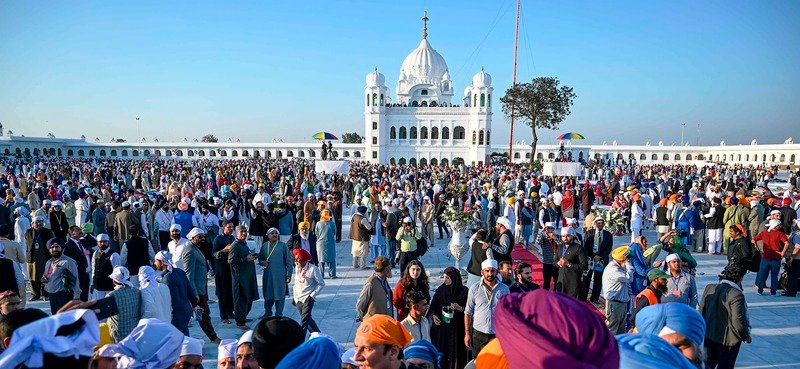
Sikh pilgrimage ban: Sikh Communities Raise Concerns Over Pilgrimage Ban
Sikh communities across the world have voiced strong concerns after India’s Ministry of Home Affairs barred pilgrims from traveling to Pakistan for major religious events, including Guru Nanak’s Prakash Purab and Jyoti Jot anniversary. The decision has stirred disappointment among devotees who consider sites in Pakistan, such as Gurdwara Darbar Sahib and Nankana Sahib, as central to their faith and heritage.
The restriction, imposed on grounds of security, has not only affected the sentiments of the Sikh diaspora but also reignited debates around religious freedom and cross-border cultural ties.
Sacred Sites Out of Reach for Pilgrims
Every year, thousands of Sikhs from India and around the world travel to Pakistan to participate in religious events tied to Sikh history. Among the most significant are gatherings at Nankana Sahib, the birthplace of Guru Nanak, and Gurdwara Darbar Sahib, a site deeply revered by the community.
The new ban prevents devotees from attending these events, leaving many disheartened. For practicing Sikhs, the annual pilgrimage is not merely a tradition but an act of spiritual connection, and its suspension is seen as a denial of their religious rights.
Sikh Organizations Condemn the Decision
Prominent Sikh organizations, including the Shiromani Gurdwara Parbandhak Committee (SGPC) and Sikh Federation UK, have openly condemned the Indian government’s decision. They described the move as a violation of religious freedoms guaranteed to citizens and criticized it for targeting a community’s spiritual obligations.
Leaders of these organizations have urged the government to reconsider the decision, stressing that political or security challenges should not interfere with matters of faith. They argue that facilitating such pilgrimages strengthens cultural ties and fosters goodwill across borders.
Critics Highlight Policy Inconsistencies
Criticism has also emerged over what many see as inconsistencies in India’s approach toward Pakistan. Observers note that while religious pilgrimages are being restricted, sporting engagements, including cricket matches, continue to take place despite strained diplomatic relations.
This contrast has raised questions about whether the ban reflects genuine security concerns or a selective policy that disproportionately affects Sikh communities. The debate underscores the complexities of India-Pakistan relations, where religious, cultural, and political issues often intersect.
Impact on the Global Sikh Diaspora
The decision’s impact extends beyond India, as Sikhs living abroad also rely on official arrangements to access Pakistan’s holy sites. Communities in countries such as the United Kingdom, Canada, and the United States have expressed solidarity with their counterparts in India, emphasizing that such restrictions alienate believers from their religious roots.
For many Sikhs, access to historical gurdwaras in Pakistan represents an irreplaceable spiritual journey. Blocking this access, they argue, undermines both cultural heritage and the principles of religious freedom that Sikhs continue to advocate for worldwide.







